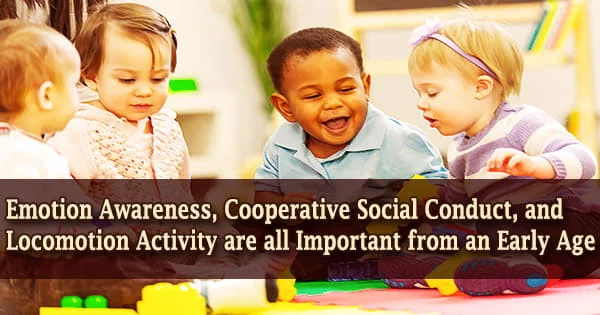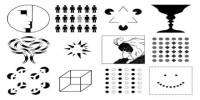What are the key abilities that young children must develop at the beginning of school in order to achieve academic success in the future? While a large body of research shows strong links between cognitive skills (attention, memory, etc.) and academic skills on the one hand, and emotional skills on the other, in students from kindergarten to university, few studies have looked at these connections in children aged 3 to 6 in a school context.
Researchers from the University of Geneva (UNIGE) and the Valais University of Teacher Education (HEP-VS) in Switzerland investigated the links between emotional knowledge, cooperation, locomotor activity, and numerical skills in 706 children aged 3 to 6 in collaboration with teachers from Savoie, France, and their pedagogical advisor.
The findings, which will be published in the journal Scientific Reports, indicate for the first time that emotion awareness, cooperative social behavior, and locomotor activity are all linked to numerical abilities. These findings support the political and scientific consensus on the significance of social-emotional skills in early childhood education, and they suggest that locomotor activity should be included to these basic abilities.
Among these abilities, ‘emotion knowledge’ contributes significantly and is a long-term predictor of social behavior and academic success.
Edouard Gentaz
A rising number of researchers are looking at the core talents that help youngsters prepare for school and are especially important for their academic performance in the future. “Among these abilities, ‘emotion knowledge’ contributes significantly and is a long-term predictor of social behavior and academic success,” says Edouard Gentaz, professor in the Department of Psychology at the Faculty of Psychology and Educational Sciences (FPSE) of the UNIGE and the last author of this study.
Few research, on the other hand, has looked at the relationships between socio-emotional and intellectual skills in preschoolers. “To fill this gap, we joined forces with the HEP-VS and a team of teachers from Savoie in France and their pedagogical advisor to examine how emotion knowledge, social behavior, and locomotor activity are associated and linked to the numerical skills in 706 pupils aged between 3 and 6 years old,” continues the Geneva-based researcher.
Unlike other studies, which look at school success through reading exams, this one focuses on numerical learning, which has a lower correlation with parents’ socioeconomic status than language abilities.
Original tests adapted to the preschool age and educational context
Age-appropriate assessments were designed in close collaboration with 33 volunteer teachers who participated in an interactive workshop where they were instructed to set up, run, and evaluate the various tests in a standardized manner in order to investigate the linkages between the four variables analyzed. As a result, two emotion understanding tests were used to measure emotion knowledge.
The first assessed the ability to recognize the fundamental emotions of anger, fear, joy, and sorrow, as well as a neutral facial expression, while the second assessed the comprehension of the extrinsic sources of these emotions in others. This second task was divided into two subtasks: the teacher presented the student with five drawing scenarios, each illustrated by a picture of a character with a blank face facing a specific situation (e.g., ‘This boy has just received a present for his birthday,’) and then asked the student to indicate the facial expression that corresponded to what the character felt in each situation, first by pointing to it (non-verbal responses).
Three numerical exams were used to examine mathematical abilities. The first test, for example, was designed to see if students understood that the cardinal of a collection does not change when the spatial arrangement or nature of its elements changes: the teacher placed a photograph in front of the student showing four collections of objects (two of which were composed of the same number of elements) and asked the student to indicate which collection had the most objects, which collection had the fewest, and which twain contained the same number of objects.
The psychologists designed observation grids to analyze the locomotor activity and social behavior of the students in collaboration with the teachers and their advisers. The grid designed for locomotor activity allowed the children’s performance on an agility course consisting of numerous installations on the ground and in the air to be rated.
In terms of social behavior, the designed grid allowed instructors to assess the children’s reactions and attitudes throughout the practice of two separate team games (one with a ball and one without).
Key skills to promote numerical learning
From the ages of 3 to 6, kids’ numerical skills are interdependent and connected with emotion understanding, locomotor activity, and social behavior, according to the findings of this study.
“Indeed, specific statistical analyses (regression and mediation) show that high scores on tests assessing emotion knowledge, locomotor activity, and social behavior predict better mathematical performance in these students,” notes Thalia Cavadini, a researcher in the Department of Psychology at FAPSE and first author of the study.
“Thus, our results are in line with the scientific consensus on the importance of social-emotional skills at the beginning of schooling and suggest that locomotor activity should be added to these fundamental skills,” she concludes.
According to the findings of this study, children’s arithmetic skills are interdependent and linked with emotion comprehension, locomotor activity, and social behavior from the ages of 3 to 6.
















